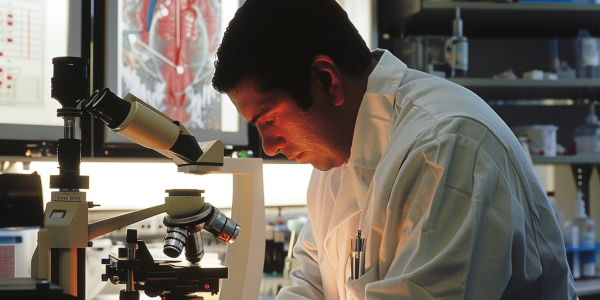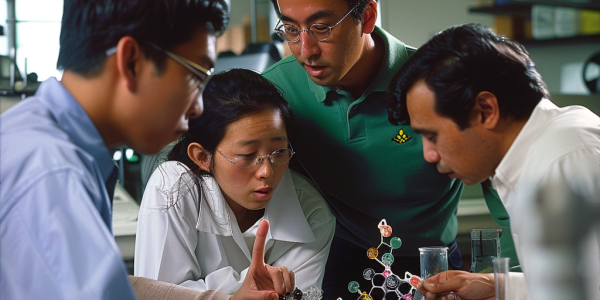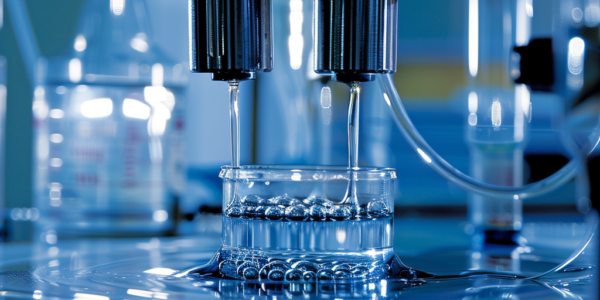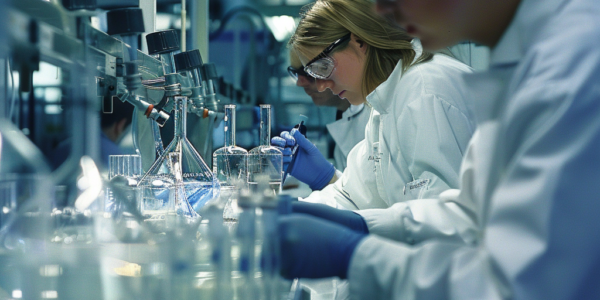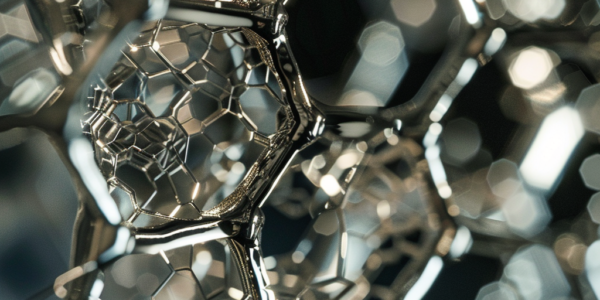Revolutionary Electron Microscopy Project Aims to Transform Understanding of Chemical Reactions
Researchers from the University of Illinois Chicago have launched the MOSAIC project, backed by a $1.8 million NSF grant, to revolutionize electron microscopy techniques for observing chemical reactions in real-time. This initiative aims to enhance our understanding of atomic interactions and could lead to breakthroughs in materials science, drug development, and nanotechnology.
Navigating Privacy and Scientific Breakthroughs in Nanotechnology
Explore the critical intersection of privacy and nanotechnology advancements in our digital age. Understand the implications of cookie consent on personal data processing and discover groundbreaking research on manipulating single-molecule reactions, paving the way for innovations in pharmaceuticals and materials science.
Revolutionary Non-Addictive Painkiller Targets Chronic Pain Areas
Researchers have developed a groundbreaking non-addictive painkiller that targets chronic pain areas directly, marking a significant advancement in pain management. This innovative prodrug remains inactive until it reaches sites of chronic discomfort, offering a more effective treatment by addressing the root causes of pain. As preparations for human trials begin, this targeted approach promises to transform chronic pain therapy, providing hope for millions suffering from this condition.
Breakthrough Azide-Wittig Reaction Revolutionizes Organic Synthesis
Researchers at the Rostock Leibniz Institute for Catalysis have discovered the Azide-Wittig reaction, a groundbreaking advancement in organic synthesis. Led by Dr. Christian Hering-Junghans and Ph.D. student Kushik, this innovative reaction integrates nitrogen-carbon bonds, offering new pathways for creating complex organic molecules. This significant development promises to enhance drug development and materials science, showcasing the unpredictable nature of scientific research and the importance of adaptability.
KAIST Researchers Unveil Novel Light-Driven Method for Atom Swapping in Aromatic Rings
Researchers at KAIST have unveiled a groundbreaking light-driven photocatalytic reaction that enables the replacement of oxygen atoms with nitrogen in five-membered aromatic rings. This innovative approach, published in Science, marks a significant advancement in atom-swapping reactions, with profound implications for medicinal chemistry and drug development.
Revolutionary Technology Allows Unprecedented Insights into Catalysts at Atomic Level
Berkeley Lab’s groundbreaking new technology offers unprecedented insights into catalysts at the atomic level, shedding light on essential electrochemical reactions powering technologies like batteries and fuel cells. The specialized polymer liquid cell coupled with transmission electron microscopy allows real-time observation of catalyst surface atoms interacting with liquid electrolytes, enabling researchers to track composition changes at different stages. This innovative approach not only deepens understanding of catalytic processes but also holds promise for enhancing the efficiency and sustainability of diverse technologies.
New Paths to Optimize Electrochemical Processes
Scientists have found new paths to steer and optimize electrochemical processes, essential for the transition to renewable energies. The discovery of new ways to fine-tune electrochemistry opens up exciting possibilities for the future of renewable energy and sustainable chemistry.
New Strategy for Assessing Applicability of Chemical Reactions Developed by University of Münster Chemists
Chemists at the University of Münster have developed a computer-aided, bias-free method for selecting model substrates to evaluate new chemical reactions, aiming to improve the quality and information content of chemical reaction data and close knowledge gaps. The method is based on the complexity and structural properties of real pharmaceutical compounds, with the goal of lowering the barriers to the application of new reactions in both academic and industrial contexts. The work, published in the journal ACS Central Science, aims to initiate a ‘rethinking process’ in the evaluation of chemical reactions and represents an important step towards standardizing and objectifying the development and evaluation of chemical reactions.
Groundbreaking Discovery: New Ruthenium Catalyst Revolutionizes Chemistry
The University of Manchester scientists have developed a groundbreaking ruthenium catalyst with the potential to revolutionize optimization processes in various industries. This stable catalyst eliminates the need for specialized equipment, promotes environmentally friendly practices, and holds promise for the future of industrial processes and scientific exploration.
Chemists Use Blockchain to Investigate Emergence of Life on Earth
A team of chemists has made a groundbreaking discovery by harnessing blockchain technology to investigate the emergence of life on Earth. This innovative use of blockchain demonstrates its potential to solve problems beyond the financial sector, providing leads for scientists…



